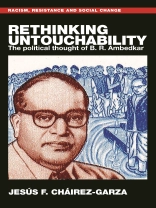This book examines the transformation of untouchability into a political idea in India during the first half of the twentieth century. At its heart is Ambedkar’s role and the concepts he used to champion untouchability as a political problem. Ambedkar’s main objective was to comprehend the numerous avatars of untouchability in order to eradicate this practice. Ambedkar understood untouchability beyond aspects of ritual purity and pollution by stressing its complex nature and uncovering the political, historical, racial, spatial and emotional characteristics contained in this concept. Ambedkar believed the abolition of untouchability depended on a widespread alteration of India’s political, economic and cultural systems. Ambedkar reframed the problem of untouchability by linking it to larger concepts floating in the political environment of late colonial India such as representation, slavery, race, the Indian village, internationalism and even the creation of Pakistan.
Tabella dei contenuti
Introduction
1 A politics of ventriloquism: The politicisation of untouchability in late colonial India circa 1900-1930
2 Fighting inferiority: Ambedkar, Franz Boas and the rejection of racial theories of untouchability
3 Touching freedom: Ambedkar, untouchability and liberty in late colonial India
4 Touching space: The village, the nation and the spatial features of untouchability
5 Ambedkar and the Left: Theory and praxis
6 Nobody’s people: Pakistan and the erasure of untouchable politics
7 The Internationalisation of untouchability circa 1939-47
Conclusion
Index
Circa l’autore
Jesús F. Cháirez-Garza is Lecturer of the History of Race and Ethnicity at the University of Manchester












